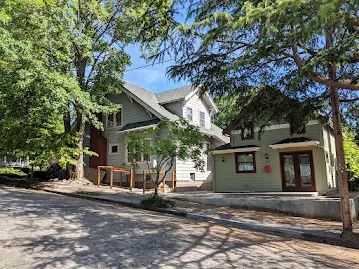As of February 2, 2025, Massachusetts has enacted new regulations permitting accessory dwelling units (ADUs) by-right in all single-family residential zones statewide. This significant policy shift aims to address housing shortages and provide homeowners with opportunities to enhance property value and generate additional income.
Understanding ADUs
ADUs are secondary housing units located on the same lot as a primary single-family home. They can take various forms, including:
- Detached units separate from the main house
- Attached units that expand the existing structure
- Converted spaces within the primary residence, such as basements or garages
Key Aspects of the New Regulations
The recent regulations streamline the process for homeowners interested in adding an ADU by:
- By-Right Approval: Homeowners can now construct an ADU without the need for special permits or zoning variances, simplifying the approval process.
- Size and Design Standards: ADUs must comply with specific size limitations relative to the primary dwelling and adhere to design guidelines to ensure neighborhood compatibility.
- Occupancy Requirements: The regulations outline who can occupy ADUs, which may include family members, caregivers, or tenants, depending on local ordinances.
Benefits of Adding an ADU
For homeowners in the Greater Boston area, incorporating an ADU offers several advantages:
- Increased Property Value: An ADU can enhance the overall value of your property by adding livable space.
- Additional Income: Renting out an ADU provides a steady income stream, which can be particularly beneficial in offsetting mortgage costs.
- Flexible Living Arrangements: ADUs offer versatile options for housing family members, such as aging parents or adult children, while maintaining privacy for all parties.
Considerations Before Building an ADU
Before embarking on the construction of an ADU, consider the following:
- Local Zoning Laws: While the state permits ADUs by-right, local municipalities may have additional requirements or restrictions. It's essential to consult with local planning departments.
- Construction Costs: Evaluate the financial investment required for building an ADU, including design, materials, and labor.
- Impact on Property Taxes: Adding an ADU may affect your property's assessed value and, consequently, your property taxes.
Want to learn more about adding an AUD?
If you're considering adding an ADU to your property, it's advisable to consult with a real estate professional to understand how this addition aligns with your property's potential and market trends. Additionally, engaging with local authorities will ensure compliance with all applicable regulations.
For more detailed information on the final regulations, you can refer to the Massachusetts Association of REALTORS®' article.
As always, staying informed and seeking professional guidance can help you make the best decisions for your property's future. Book time on Danielle Dimond's calendar to explore your options today.
_Types.jpg)
